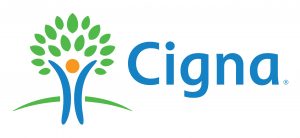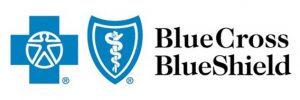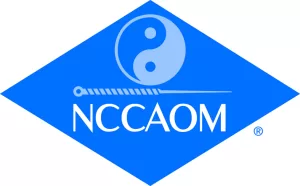This report presents an overview of the 2024 Korean Medicine Health Promotion Project for the Elderly, implemented in Seoul. It focuses on the effectiveness and clinical validity of acupuncture and herbal medicine in managing age-related conditions, particularly mild cognitive impairment (MCI) and geriatric depression. It also details various diagnostic methods used in the program and compares pre- and post-treatment outcomes.
1. Background and the Importance of Korean Medicine
As Korea experiences rapid population aging, the prevalence of age-related conditions such as dementia and geriatric depression is rising significantly. As of 2022, the estimated number of dementia patients was around 880,000, posing a substantial socio-economic burden and emerging as a national concern.
Mild cognitive impairment is considered a transitional stage with a high risk of progressing to dementia. Geriatric depression is closely linked to cognitive decline and a higher risk of suicide. Therefore, early prevention and effective management are critically important.
Due to the limitations and side effects of conventional pharmacological treatments, there is growing public demand for integrative and non-pharmacological approaches. Within this context, Korean medicine has gained attention as an effective alternative to promote elderly health. This project scientifically validated the effectiveness of acupuncture and herbal medicine in elderly care.
2. Korean Medicine-Based Elderly Health Promotion Program: Acupuncture and Herbal Treatment
2.1 Effects and Details of Acupuncture
Acupuncture is a non-pharmacological treatment that has demonstrated mechanistic and clinical efficacy for both cognitive impairment and depression.
– Cognitive Improvement:
Acupuncture applied to patients with mild cognitive impairment showed significant improvement in functional brain activity (as seen on fMRI) and in clinical cognitive assessment scores, such as the Clinical Dementia Rating (CDR) and Mini-Mental – State Examination (MMSE).
Notably, patients with amnestic-type MCI exhibited greater cognitive improvement with acupuncture than those treated with the cerebral blood flow enhancer nimodipine.
– Depression Improvement:
Studies involving patients with major depressive disorder have shown that acupuncture has comparable effectiveness to antidepressants. Combined treatment with both acupuncture and antidepressants is often recommended for enhanced results.
– Treatment Methods:
The attached report includes details on acupuncture protocols such as acupoint selection, stimulation intensity, and treatment frequency.
2.2 Effects and Details of Herbal Medicine
Herbal medicine has been found effective in stabilizing cognitive function in patients with MCI and dementia, with minimal side effects.
Cognitive and Dementia Management:
Herbal medicine effectively maintains cognitive function in patients with MCI and dementia. Its minimal side effects make it suitable for long-term use with high patient compliance.
– Depression Improvement:
Herbal medicine has demonstrated efficacy in treating depressive symptoms either as a standalone therapy or in combination with antidepressants. Studies confirm that combining herbal medicine with antidepressants can significantly reduce adverse drug reactions.
– Treatment Methods:
The report provides specific prescriptions, dosages, and administration instructions for herbal treatments.
3. Pre- and Post-Treatment Assessments by Diagnostic Method
To objectively evaluate treatment efficacy, the project utilized multiple diagnostic tools to compare patient status before and after Korean medicine interventions.
3.1 Major Diagnostic Tools Used
– Brain Function Testing:
Baseline and follow-up neurocognitive screenings and evaluations were conducted to assess overall changes in brain function.
– Cognitive Assessments:
CIST (Cognitive Impairment Screening Test):A screening tool for identifying cognitive decline.
MoCA (Montreal Cognitive Assessment) I & II:Widely used for diagnosing mild cognitive impairment.
MMSE (Mini-Mental State Examination):A standard screening tool for assessing general cognitive function.
– Depression Scale:
GDS-SF-K (Geriatric Depression Scale-Short Form-Korean):A specialized scale for evaluating geriatric depressive symptoms.
– Physiological Tests:
Blood tests and autonomic nervous system assessments were used to monitor physiological changes associated with treatment.
Korean Medicine Diagnostic Tools:
Tools based on traditional diagnostics, such as pattern identification for dementia, were also used to evaluate therapeutic changes from a Korean medicine perspective.
3.2 Pre/Post-Treatment Comparison Results
– Cognitive Function Improvement:
Participants receiving acupuncture showed statistically significant improvement in cognitive scores (e.g., MMSE, CDR), suggesting positive effects on cognitive function. Herbal medicine also contributed to stabilizing cognitive function.
– Reduction in Depressive Symptoms:
Herbal treatments helped alleviate depressive symptoms and showed potential for reducing side effects of conventional medications. Acupuncture also proved effective in improving depressive symptoms.
– Safety Assessment:
Blood tests and follow-up monitoring confirmed the safety of Korean medicine interventions. The low incidence of side effects suggests high patient compliance.
4. Conclusion and Recommendations
The 2024 Korean Medicine Health Promotion Project for the Elderly confirmed that acupuncture and herbal medicine are effective alternatives for managing cognitive impairment and depression in older adults.
Scientific pre- and post-treatment assessments provided robust evidence supporting the efficacy and safety of Korean medicine therapies. These findings justify the continued expansion of Korean medicine-based elderly care initiatives and support their integration into broader public health strategies.
© 2024 AIMI Resource Center. All rights reserved.









